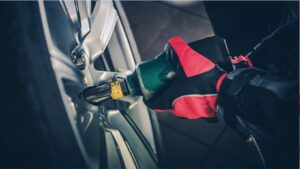Vehicle Care
Ensuring proper maintenance of vehicles is essential for safety, performance, and cost-effectiveness. Regular maintenance tasks like changing oil and checking tire pressure play a crucial role in keeping your car running smoothly. Whether you’re a seasoned driver or a novice, having a grasp of basic maintenance practices is vital for preserving the value of your investment. By adhering to a maintenance schedule and promptly addressing any issues that arise, you can prolong your vehicle’s lifespan and enjoy a worry-free driving experience. The upcoming content will provide expert tips on how to maintain your vehicle effectively and improve its efficiency.
Regular maintenance is paramount in upholding the safety, performance, and longevity of your vehicle. Adhering to a consistent maintenance schedule ensures that your car operates at its best, minimizing the risk of breakdowns and costly repairs. By conducting routine checks and servicing your vehicle as recommended by the manufacturer, you can identify potential issues early on and address them proactively. This proactive approach not only enhances safety on the road but also contributes to optimal performance and fuel efficiency.
Engaging in basic vehicle care practices is fundamental for all car owners. Simple tasks like checking fluid levels, inspecting tire tread, and monitoring brake pads can significantly impact the overall well-being of your vehicle. Regularly cleaning both the interior and exterior of your car not only maintains its aesthetic appeal but also prevents corrosion and damage. Additionally, following the manufacturer’s guidelines for maintenance intervals and service recommendations is essential for keeping your vehicle in top condition. By incorporating these basic care practices into your routine, you can ensure that your vehicle remains reliable, efficient, and safe on the road.
DIY Vehicle Maintenance Tips
When it comes to DIY vehicle maintenance, a few key tasks can go a long way in keeping your car running smoothly. Here are some essential tips for maintaining your vehicle on your own:
Regularly checking and changing your car’s oil is crucial for its overall health and performance. Oil lubricates the engine’s components, preventing friction and overheating. To ensure proper oil levels, locate the oil dipstick, pull it out, wipe it clean, reinsert it, and then check the oil level. If it’s low, add the appropriate oil for your vehicle. Changing the oil at recommended intervals, usually every 5,000 – 7,500 miles, depending on your car’s make and model, helps keep the engine running smoothly and extends its lifespan.
Proper tire maintenance is essential for safety and performance. Regularly check the tire pressure using a gauge and ensure it matches the recommended PSI (pounds per square inch) in your vehicle’s manual or on the sticker inside the driver’s door. Additionally, inspect tires for signs of wear, such as uneven tread or damage. Rotate your tires every 6,000 – 8,000 miles to ensure even wear across all four tires, extending their lifespan and improving traction. Maintaining optimal tire pressure and rotating them regularly can enhance fuel efficiency, handling, and safety on the road.
Professional Vehicle Care Services
Professional vehicle care services should be sought when complex issues arise that require specialized knowledge and equipment. While basic maintenance can be done by car owners, tasks such as engine diagnostics, electrical system repairs, or advanced mechanical work are best handled by experienced professionals. If there are warning lights on the dashboard, strange noises, or performance issues, it’s advisable to consult a professional mechanic to diagnose and resolve the problem effectively.
If there are warning lights on the dashboard, strange noises, or performance issues, it’s advisable to consult a professional mechanic to diagnose and resolve the problem effectively.
For optimal performance and longevity of your vehicle, certain services are recommended to be performed by professional technicians. These services include regular inspections, tune-ups, brake system checks, wheel alignment, and fluid flushes. Regular inspections help identify potential issues early, tune-ups improve engine performance, brake system checks ensure safety, wheel alignment enhances tire wear, and fluid flushes maintain the efficiency of vital systems. By scheduling these recommended services periodically, car owners can keep their vehicles in top condition and avoid costly repairs in the future.

